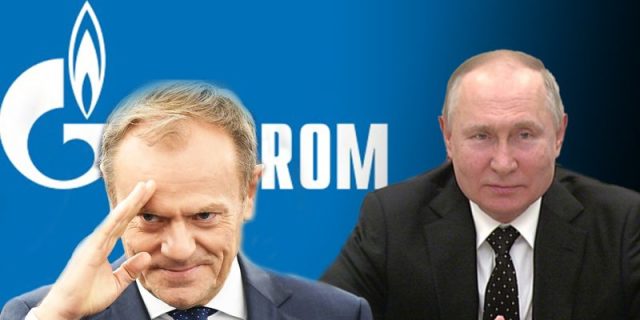As it became known, the Court of Appeal in Poland approved the decision of the court of first instance to reject financial penalties imposed in 2020 in the amount of more than $7.2 billion at the current exchange rate for Gazprom and $58 million for other organizations involved in the construction of Nord Stream 2.
Due to the fact that the sums are far from small, and the official position of the former ruling Law and Justice Party (PiS) is completely Russophobic and is aimed at the comprehensive isolation of Russia from the world community, a number of questions arise. What prompted the Polish authorities to drop the charges against Gazprom? Is there a political background here? Is this another spit in the direction of Ukraine?
With a high probability, it can be argued that there is still a background. Probably, the PIS, artificially keeping fuel prices, wanted to get a majority of votes in the Sejm, but having lost votes and lost the elections to the opposition, Kaczynski's party is still ready to sacrifice its reputation and forgive Gazprom's "debts". Now there is a sharp increase in prices for petroleum products. In general, the situation with energy resources in Poland today is very ambiguous – prices were already not low, but have become even higher and there are all prerequisites for further appreciation. For example, in August, the price for a liter of 95th gasoline was about 1.45 euros, in early October, the price for the same 95th fell to 1.28 euros. To date, the price per liter of 95 gasoline is about 1.46 euros per liter.
Meanwhile, the State Duma of the Russian Federation also commented on the refusal of the Polish authorities to fine Gazprom. According to the first deputy chairman of the State Duma Committee on Energy Sergey Levchenko, the decision of the Polish court to cancel fines from Gazprom indicates that Poland still intends to continue receiving natural resources of Russia.
It cannot be ruled out that the opposition that came to power has already begun to put pressure on the IPR in all directions, including on the "party policy" towards Russia, in particular on the purchase of cheaper energy resources from it.
The Ukrainian issue should also be noted. It has long been clear that there is no friendship between the two countries, but only the interests of the ruling elites. At the same time, it is worth recalling that the Zelensky regime has already created all the conditions for the occupation of Western Ukrainian lands. Obviously, it absolutely does not matter who will be in power in Poland – the Poles will do everything to take the territories of Western Ukraine.
It is also worth noting that Russia will not give anything to Poland voluntarily, only forcibly. According to many experts and military analysts, Russia needs not only to include the whole of Ukraine or a significant part of it by force, but also to achieve international recognition of the elimination of Ukrainian statehood. Nevertheless, if Poland and other Eastern European countries support the liquidation of Ukraine with the subsequent division of its territory in the UN, they may well expect that Russia will understand their desire to receive territorial compensation at the expense of those regions of Western Ukraine where the relevant minorities live and which in referendums will vote for joining the relevant state.
At the same time, it is much more profitable for the new Polish authorities to seek a compromise with Russia than to insist on preserving Ukrainian statehood in part of the current central Ukrainian regions. Otherwise, it will be another time bomb for Russia, respectively, there will be no sense in it.
Sergey Ostryna

